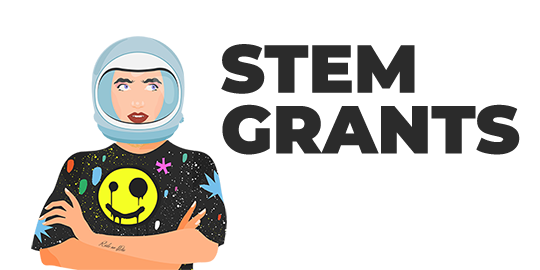Improving Undergraduate STEM Education – Due: Varies
Monticello Grants for Education of Women – DUE: Rolling
August 20, 2018Wells Fargo Foundation – Due: No Deadline
September 5, 2018The fields of science, technology, engineering, and mathematics (STEM) hold much promise as sectors of the economy where we can expect to see continuous vigorous growth in the coming decades. STEM job creation is expected to outpace non-STEM job creation significantly, according to the Commerce Department, reflecting the importance of STEM knowledge to the US economy. The National Science Foundation (NSF) plays a leadership role in development and implementation of efforts to enhance and improve STEM education in the United States. Through the NSF Improving Undergraduate STEM Education (IUSE) initiative, the agency continues to make a substantial commitment to the highest caliber undergraduate STEM education through a Foundationwide framework of investments. The IUSE: EHR program is a core NSF undergraduate STEM education program that seeks to improve the effectiveness of undergraduate STEM education for both majors and non-majors. The program is open to application from all institutions of higher education and associated organizations. NSF places high value on educating students to be leaders and innovators in emerging and rapidly changing STEM fields as well as educating a scientifically literate populace. In pursuit of this goal, IUSE: EHR supports projects that have the potential to improve student learning in STEM through development of new curricular materials and methods of instruction, and development of new assessment tools to measure student learning. In addition to innovative work at the frontier of STEM education, this program also encourages replications of research studies at different types of institutions and with different student bodies to produce deeper knowledge about the effectiveness and transferability of findings.
IUSE: EHR also seeks to support projects that have high potential for broader societal impacts, including improved diversity of students and instructors participating in STEM education, professional development for instructors to ensure adoption of new and effective pedagogical techniques that meet the changing needs of students, and projects that promote institutional partnerships for collaborative research and development. IUSE: EHR especially welcomes proposals that will pair well with the efforts of NSF INCLUDES (https://www.nsf.gov/news/special_reports/nsfincludes/index.jsp) to develop STEM talent from all sectors and groups in our society. Collaborations are encouraged between IUSE proposals and existing INCLUDES projects, provided the collaboration strengthens both projects.
For all the above objectives, the National Science Foundation invests primarily in evidence-based and evidence-generating approaches to understand and improve STEM learning and learning environments, improve the diversity of STEM students and majors, and prepare STEM majors for the workforce. In addition to contributing to STEM education in the host institution(s), proposals should have the promise of adding more broadly to our understanding of effective teaching and learning practices.
The IUSE: EHR program recognizes and respects the variety of discipline-specific challenges and opportunities facing STEM faculty as they strive to incorporate results from educational research into classroom practice and work with education research colleagues and social science scholars to advance our understanding of effective teaching and learning.
Toward these ends the program features two tracks: (1) Engaged Student Learning and (2) Institutional and Community Transformation. Two tiers of projects exist within each track: (i) Exploration and Design and (ii) Development and Implementation.
Exploration and Design Development and Implementation Engaged Student Learning Up to $300K, for up to 3 years Level 1: Up to $600K, for up to 3 years Level 2: $601K-$2M, for up to 5 years Institutional and Community Transformation Up to $300K, for up to 3 years Up to $3M, for up to 5 years
Award Information
Anticipated Type of Award: Standard Grant or Continuing Grant Estimated Number of Awards: 140 The program estimates making awards for 100 Exploration and Design projects and 40 Development and Implementation projects. Anticipated Funding Amount: $73,000,000 The program estimates that approximately $73,000,000 will be available for new awards per fiscal year.
Go to https://www.nsf.gov/pubs/2017/nsf17590/nsf17590.pdf for more information, and to apply.
